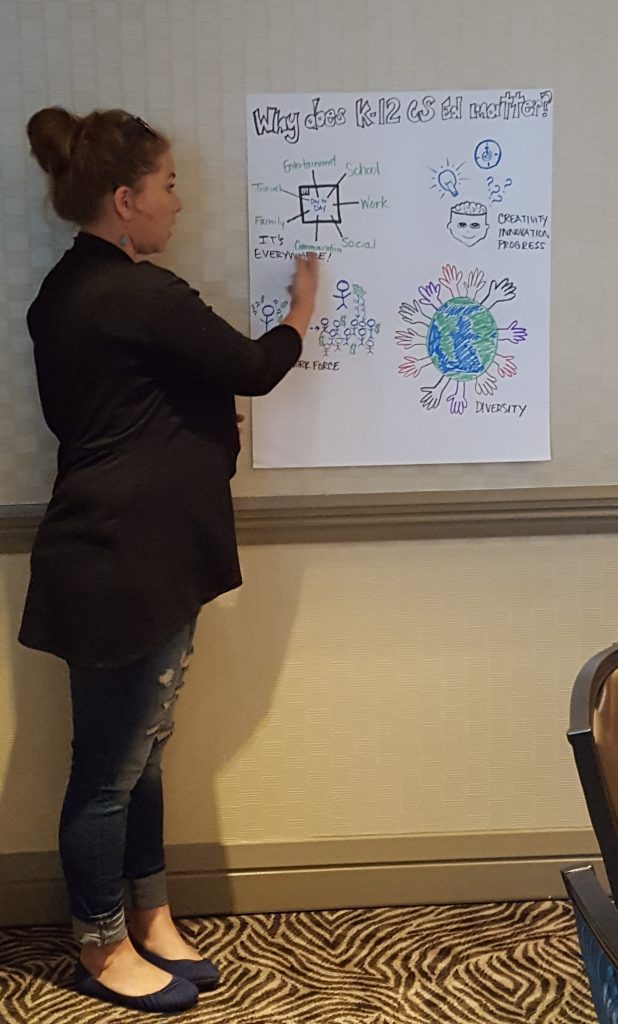CS Curriculum Professional Learning

Selecting a High Quality CS Curriculum
One of the positives of PACE is that it can be tailored to state and local education contexts. Districts could use any high-quality, evidence-based CS curriculum that aligns with relevant standards and curriculum guidance, is flexible to the allocated instructional time (e.g., one month to one year), and was selected after a dedicated review and with input and buy-in from educators, students, parents, and administrators.
For example, Massachusetts educators and administrators can refer to the MA DESE Digital Literacy and Computer Science Curriculum Framework and the Digital Literacy and Computer Science Curriculum Guide for Massachusetts Districts as they do their research.
Engaging Staff in Professional Learning
Professional learning is key to the successful implementation of PACE. Each high-quality curriculum offers professional learning opportunities; to equip teachers with the tools and knowledge they need, be sure to engage teachers in those activities. Professional learning activities can include:
- Training on the curriculum, either in-person or online. Curriculum training that includes teaching strategies and how to use them with the curriculum has been shown to be the most effective. In-person training usually occurs in the summer and may require travel and accommodation so plan ahead.
- In-person coaching support. Coaching supports teachers in implementing the curriculum as effectively as possible and helps teachers troubleshoot classroom issues. Coaching support is most effective when started early in implementing the curriculum. Regular coaching sessions help to address ongoing issues as well as new issues that arise.
- Communities of Practice (CoPs). CoPs offer an opportunity for teachers to share implementation challenges and solutions with other teachers. CoPs are often virtual and meet monthly or bimonthly.
CS Discoveries
Many (but not all) of the PACE program pilot districts used the Code.org CS Discoveries curriculum. Developed by Code.org, the CS Discoveries curriculum is a free, introductory computer science course for middle and early high school students (grades 6-10) that emphasizes creativity, problem-solving, and collaboration through hands-on projects like websites, apps, animations, and physical computing devices. It covers topics such as the problem-solving process, web development, programming, data analysis, and physical computing, and is designed to be flexible, fitting into various timeframes from a month to a full school year.
The CS Discoveries page offers curriculum resources as well as resources and workshops on teaching. Scroll down to “Resources that support you every step of the way” for lesson plans, videos, slides, assessments, and progress monitoring tools. Scroll further to Preparing to teach Computer Science Discoveries for prep courses. (You may need to create a free account.)
In addition, the Teach section of Code.org offers other computer science professional learning sessions.
- Self-paced courses are offered online. Filtering by the middle grades and by the CS Discoveries curriculum brings up courses ideally suited to support PACE teachers. For example, see the Teaching CS Discoveries three-hour course covering Web Design, Physical Computing, and Data Programming.
- Facilitated workshops are delivered through regional partners. (E.g., CSforMA is the Massachusetts regional partner, and offers multi-day workshops in the summers.)
- The Teacher Community includes a CS Discoveries Forum where educators post resources and pose questions about the curriculum. You can access these, along with many other resources, through the Teach tab of the Code.org site.
